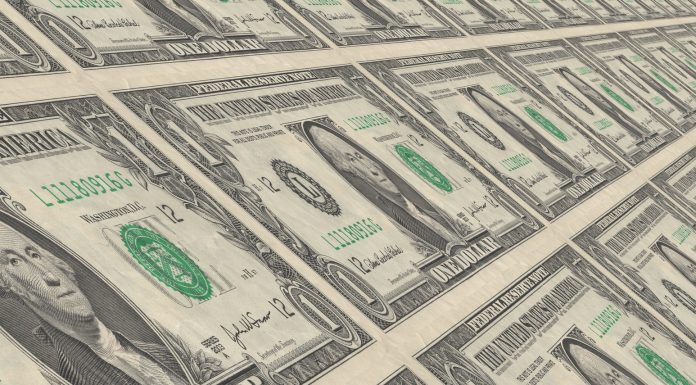(Money Metals Exchange) Disruptions from COVID lockdowns and distortions in the normal rhythms of supply and demand are leading to shortages and price increases in some retail and commercial goods.
To make matters worse, this week a critical bottleneck for global trade was literally blocked. A container ship got stuck in the Suez canal, closing off that major transcontinental shipping route and costing the world economy untold billions. It could be several more days before the daunting task of moving the giant vessel is complete.
In the meantime, volatility could ramp up in commodity markets. Although prices for most raw materials fell this week, disruptions in processing and delivery could soon begin to be reflected in higher futures prices.
Broader inflationary pressures are also at work. The Federal Reserve won’t stop stimulating until its official inflation gauge shows a reading of above 2% for a sustained period.
On Wednesday San Francisco Fed President Mary Daly indicated that central bankers won’t tighten monetary policy preemptively while the economy recovers and unemployment falls. She said the Fed is “not going to take this punchbowl away” until their objectives are fully met.
One of the Fed’s long-term policy objectives concerns digital currency.
On Monday, Federal Reserve Chairman Jerome Powell delivered remarks to the Bank for International Settlements — the central bank for central banks around the world.
Powell decried Bitcoin and other privately circulating cryptocurrencies as inferior to currencies issued by central banks. He indicated the Fed is looking into developing a central bank digital currency to try to blunt the rise of cryptos.
Meanwhile, Treasury Secretary Janet Yellen and members of Congress are aiming their regulatory crosshairs at Bitcoin. They say it’s used mainly for illicit purposes, even as it gains more mainstream acceptance by the likes of Tesla and other companies.
The government’s real problem with cryptocurrencies is that they represent potential competition to the Fed’s currency-creating monopoly. And as that threat grows, so do the risks of a major crackdown on digital coins.
Billionaire hedge fund manager Ray Dalio is warning that Bitcoin could be banned, much like private gold ownership was during the Great Depression.
They outlawed gold. That’s why also outlawing Bitcoin is a good probability. Every country treasures its monopoly on controlling the supply and demand. They don’t want other monies to be operating or competing, because things can get out of control. So I think that it would be very likely that you will have it under a certain set of circumstances outlawed the way gold was outlawed.
Dalio has also said that “cash is trash.” And gold is among the assets he is diversifying into for protection against dollar depreciation.
As for the possibility of future gold confiscation, the reasons why the government did so in the past simply do not apply today. Back in the 1930s, a form of a gold standard was still in force. The central bank needed gold in order to expand the money supply.
Today, of course, the Fed can print digits at will.
It’s possible that at some future date which is hard to imagine now, the U.S. could move to reinstate a gold standard in order to restore confidence in the dollar.
A severely depreciated dollar would presumably mean a much higher market price for gold. Gold holders would still be able to realize their nominal gains if ordered to sell.
One of the most common misconceptions about so-called “gold confiscation” is that armed federal agents went around to banks and homes to seize gold. In reality, citizens were ordered to exchange their gold for cash – and many refused to do so. Those who did received payment for it – albeit in a currency that was devalued shortly thereafter.
In the computer age, if the government ever became so desperate and tyrannical that it decided to confiscate assets in order to raise revenues, it would almost certainly do so digitally. Bank accounts could simply be debited. IRA and 401(k) account balances could be subjected to confiscatory wealth taxes or forced to invest in government bonds. Cryptocurrencies could be seized right on the blockchain – no armed agents needed.
These sorts of confiscations could raise trillions of dollars.
Gold and silver bullion held by individuals would not practically be worth pursuing. And as long as the U.S. Mint continues to produce its iconic American Eagle coins, we can be reasonably confident that the government won’t ever ban people from owning its own products.



